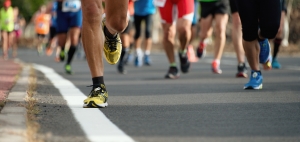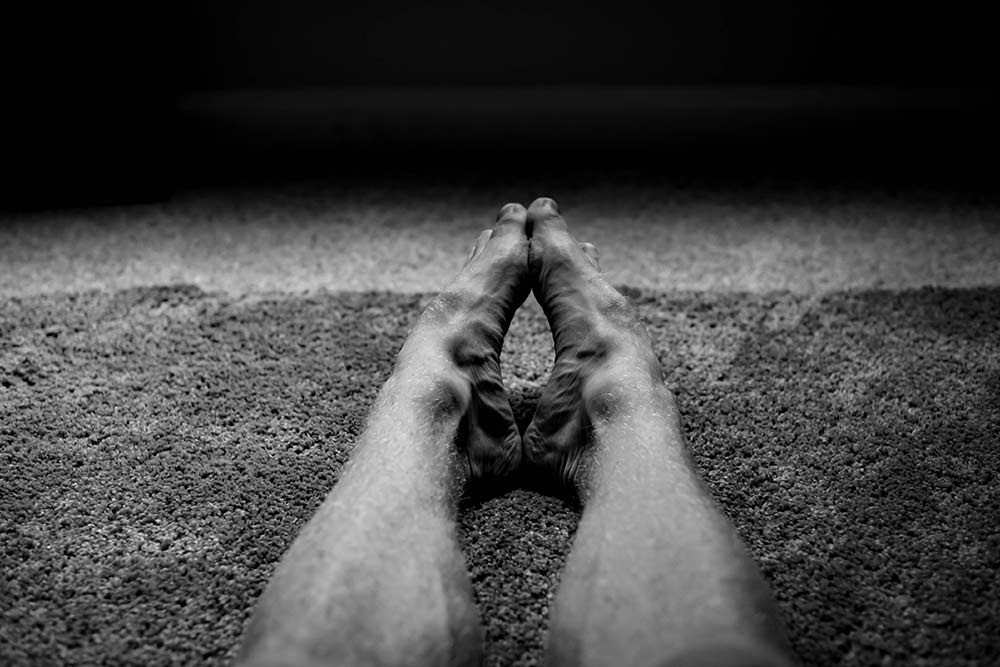Who Takes the Cake at Pacing During the Marathon?

Evan Stevens
The other talk in the session that did not tread on familiar ground was about pace and prediction of performance differences that go along with age, experience, and sex in the marathon. Pace is something very difficult to predict and hold without a GPS watch or with some frame of reference. External factors can be distracting to some and can alter our expectations of where we are in relation to time and space. Researchers wanted to know how all of these, as well as experience level, come into play when we judge pace for ourselves. The researchers had over 97,000 subjects, all of whom competed at the London Marathon.
Marathon Pacing Findings
They found that the more experienced the runner, the better they were with pace and consistency, even better than those who trained with watches and other tools. This means that marathon pacing isn’t just something that is inherent to our skill level, but it is in itself a learned skill; pace is learned judgement. When looking at data from less experienced individuals, the researchers found that there was wide variation across a number of different factors.

From a subset of 777 runners, they asked before the marathon for the runners to try and keep an even a pace as possible. What the researchers saw, however, was that the majority of runners all went out too fast and faded towards the end of the race. However, when looking at what the runners had predicted their time would be, they found that they were all averaging around their estimate. When looking at the runners, they found that men as a whole sex were significantly, if only slightly, better at predicting pace, but older females (70 years and over) were the best at predicting their time (within 30 seconds). They also found that younger males (30 and under) were the worst at predicting their finishing time, with an average deviation of 20 minutes from their prediction.
What they also found was that experience, although a learned skill, really only came into play at the higher ends of distance running. The more casual the runner, regardless of how frequently they ran or how many marathons they had completed, the worse their pacing was. The researchers concluded that pacing, while still a learned skill, must be practiced diligently, just as with any other attribute of running.
Take Away
Pacing is a learned skill that is connected not only with experience, but also skill level. Both are needed to properly judge pace. Even when trying to run a consistent marathon, the vast majority of people go out too hard and fade later in the race. This is especially true in younger men, even if men as a whole are better at predicting pace better than women. However, senior women are the best at pace prediction and judgement.
(adsbygoogle = window.adsbygoogle || []).push({});
You Might Like:
Ketogenic Diet and Running: What You Need to Know
If you have been around the health and fitness space over the last few years, then you would have heard about the ketogenic diet. You know that diet that helps with weight loss, metabolic disease,...Are Runners Less Likely to Develop COVID-19?
In this weird time of COVID-19, I have heard some strange suggestions regarding how you can prevent infection. Things like drinking colloidal silver, eating more oranges, and bathing in vinegar all come to mind. But...5 Ways to Get Rid of Shin Splints
Ryan Cross, Physiotherapist Pain related to “shin splints” is one of the most common ailments that athletes will complain about. Most runners have had a run-in with the dreaded shin splints at one time or...The Most Efficient Way to Run Faster
Evan Stevens, Sprint Coach Phosphocreatine is the most immediate source of energy we have access to run faster. It is separate from the glycolytic (anaerobic) and mitochondrial (aerobic) pathways and is a way to rapidly...Upper Body Workouts For Distance Runners
When we run long distances it is crucial to focus on form, function, and balance. Running efficiency is effected by all of these, and it will subsequently impact performance if not properly addressed. By limiting...Use the Hurdle Step to Test Your Running Mechanics
An easy way to test or observe your running mechanics is to use the Functional Movement Screen (FMS) Hurdle Step approach. As you will see in the video, this technique will enhance proper running mechanics,...(adsbygoogle = window.adsbygoogle || []).push({});












